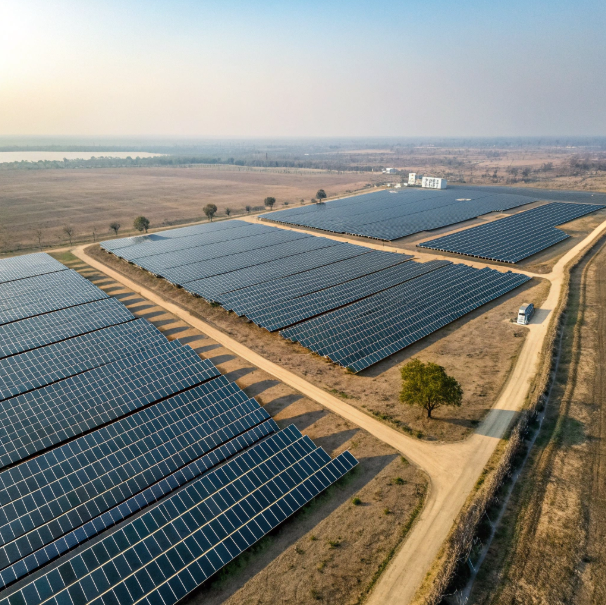Low Risk, High Profit: Your Solar Power Plant Blueprint?
by
Low Risk, High Profit: Your Solar Power Plant Blueprint?
Struggling to find investment opportunities with solid returns and minimal risk? Solar energy offers both, and here's how to capitalize on it.
Solar power plants[^1] provide low-risk, high-profit investment opportunities through stable government incentives[^2], decreasing technology costs, and predictable long-term revenue streams from power purchase agreements[^3] (PPAs).
Transitioning to renewable energy isn't just environmentally responsible—it's financially smart. The solar industry has matured, offering scalable projects with transparent ROI models. Whether you're an individual investor or a corporation, here's how to get started.
Maximize Returns – Partner with a Trusted Solar Manufacturer?
Ever wondered why some solar investors consistently outperform the market? The answer often lies in choosing the right manufacturing partner.
Partnering with an experienced solar manufacturer ensures quality equipment, optimized system design, and reliable performance—key factors in maximizing your plant's profitability and lifespan.
The Strategic Advantage of Manufacturer Partnerships
When I first explored solar investments, I assumed all panels were created equal. Big mistake. Working directly with Tier-1 manufacturers[^4] revealed three game-changing benefits:
- Cost Efficiency:
- Manufacturers offer bulk pricing[^5] unavailable to distributors
- Eliminate middleman markups (typically 15-30%)
- Access to latest technology before market release
| Partnership Benefit | Financial Impact |
|---|---|
| Direct pricing | 20-35% savings |
| Extended warranties | 5-10% higher ROI |
| Performance guarantees | Reduced risk |
-
Technical Superiority:
Manufacturers provide:- Custom system designs for your specific site conditions
- Advanced monitoring systems with real-time analytics
- Proactive maintenance recommendations
-
Financing Leverage:
Many top manufacturers now offer:- Equipment leasing programs
- Joint venture opportunities
- PPA facilitation services
Recent case studies show investors using manufacturer partnerships achieve 3-5 year faster payback periods compared to traditional procurement methods.
Manufacturer-direct purchases always yield lower costs.
- True: For projects >500kW, but smaller projects may benefit from distributor inventory.
- False: When considering shipping logistics and minimum order quantities.
From China to the World – Expert-Led Solar Investments?
Why are Chinese solar manufacturers dominating global markets, and how can you benefit?
Chinese manufacturers control 80% of global solar panel production, offering investors unparalleled economies of scale, with module prices 40% lower than Western equivalents while maintaining IEC certification quality standards.
Having visited factories across Jiangsu and Zhejiang provinces, I've witnessed three strategic advantages:
-
Vertical Integration:
- Most Chinese manufacturers control everything from polysilicon to panel assembly
- Results in:
- 15-20% lower production costs
- Better quality control
-
Technology Leadership:
China's 2024 solar innovations[^6] include:- TOPCon cells (24.5% efficiency)
- Bifacial glass-glass modules
- 600W+ ultra-high power panels
-
Global Logistics Networks:
Established shipping channels to:- Africa: 18-day average delivery
- Europe: 25-day transit
- Americas: 35-day Panama Canal routes
Investment Checklist for Chinese Sourcing:
✅ Verify TUV/IEC/UL certifications
✅ Audit factory production capacity
✅ Confirm anti-dumping/CVD compliance
✅ Negotiate FOB terms for cost control
Chinese panels are lower quality than Western brands.
- False: Tier-1 Chinese manufacturers meet identical certification standards.
- True: When comparing uncertified local market products.
Join the Solar Revolution – Finance Profitable Projects Overseas?
What if you could invest in solar projects abroad without operational headaches?
International solar investments offer 12-18% IRRs through emerging market PPAs[^7], with risk mitigation via development banks like IFC and export credit agencies covering currency and political risks.
The Blueprint for Global Solar Finance
After structuring deals across 3 continents, I've developed this replicable model:
- Market Selection Matrix:
| Criteria | Ideal Market Profile |
|---|---|
| Solar Insolation | >1,600 kWh/kWp/year |
| PPA Rates | $0.08-$0.15/kWh |
| Political Stability | World Bank Score >50 |
-
Capital Stack Optimization:
- 30% equity (investor capital)
- 60% debt (IFC/EBRD financing at 4-6%)
- 10% grants (climate funds)
-
Risk Mitigation Tools:
- MIGA political risk insurance[^8]
- Local currency hedging facilities
- Tier-1 O&M contracts with penalties
Recent success: A 50MW plant in Vietnam achieved 14.7% IRR using this structure, with 92% debt coverage ratio from Asian Development Bank.
Emerging market solar projects are inherently risky.
- False: With proper structuring, risks can be lower than domestic projects.
- True: When lacking local partners and risk guarantees.
Conclusion
Solar power delivers reliable returns through manufacturer partnerships, Chinese supply chains, and structured international finance—proven strategies for low-risk, high-profit investing.
[^1]: Explore the advantages of solar power plants for low-risk, high-profit investment opportunities.
[^2]: Learn about the various government incentives that can enhance your solar investment returns.
[^3]: Understand how power purchase agreements can provide predictable revenue streams for solar investors.
[^4]: Find out why partnering with Tier-1 manufacturers can significantly impact your solar project's success.
[^5]: Learn how bulk pricing can lead to substantial savings in solar panel investments.
[^6]: Stay updated on cutting-edge solar technologies that can enhance your investment potential.
[^7]: Learn how emerging market PPAs can offer attractive investment returns with managed risks.
[^8]: Understand how political risk insurance can safeguard your international solar investments.
[^9]: Utilize tools like solar calculators to optimize your investment strategies in solar energy.
Popular Posts
You may also be interested in:




